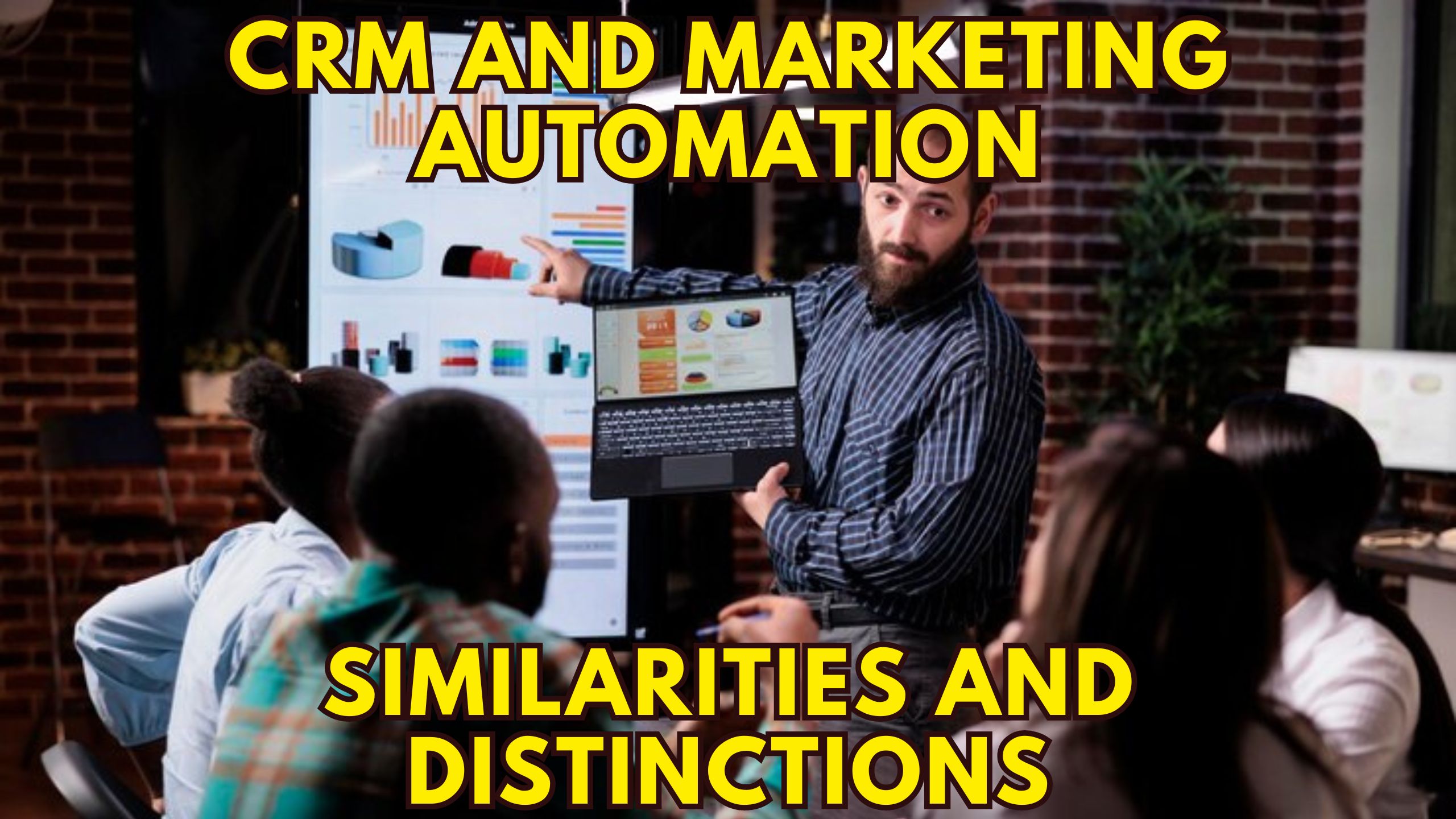CRM and Marketing Automation: Similarities and Distinctions
-


CRM and Marketing Automation: Similarities and Distinctions
Understanding the intricate relationship between Customer Relationship Management (CRM) and Marketing Automation is essential for businesses aiming to optimize their customer interactions. In this comprehensive guide, we delve into the similarities and distinctions between these two powerful tools that play pivotal roles in modern business strategies.
Unraveling CRM
Customer Data Centralization
CRM systems focus on centralizing customer data, providing a holistic view of interactions and transactions. This centralized approach fosters better communication and collaboration among different departments within an organization.
Relationship Management
The primary objective of CRM is to nurture and manage customer relationships. It enables businesses to track customer interactions, manage leads, and streamline communication, ultimately enhancing customer satisfaction and loyalty.
Distinguishing Marketing Automation
Automated Marketing Workflows
Marketing Automation is designed to streamline marketing tasks and processes. It involves automating repetitive marketing tasks, such as email campaigns, lead nurturing, and personalized content delivery, allowing businesses to scale their marketing efforts efficiently.
Lead Scoring and Segmentation
Marketing Automation tools often incorporate lead scoring and segmentation capabilities. This enables businesses to prioritize leads based on their behavior and preferences, ensuring that sales teams focus their efforts on the most promising opportunities.
Exploring Relevant SaaS Products:
- HubSpot: HubSpot is an all-in-one platform that combines CRM and Marketing Automation. Its relevance lies in providing a seamless integration of customer data and marketing workflows, fostering a unified approach to customer engagement. Explore HubSpot
- Salesforce: Salesforce is a leading CRM platform known for its robust customer data management capabilities. Its relevance extends to businesses seeking a comprehensive CRM solution with the flexibility to integrate Marketing Automation tools. Discover Salesforce
- Mailchimp: Mailchimp is a Marketing Automation tool that excels in email marketing and audience segmentation. Its relevance lies in its user-friendly interface, making it accessible for businesses of all sizes. Check Out Mailchimp
- ActiveCampaign: ActiveCampaign combines CRM and Marketing Automation, offering features like email marketing, automation workflows, and lead scoring. Its relevance is in providing a unified platform for customer engagement. Explore ActiveCampaign
- Pipedrive: Pipedrive is a CRM tool with a focus on sales pipeline management. Its relevance for businesses lies in its intuitive design and efficient sales process tracking. Try Pipedrive
Conclusion
While CRM and Marketing Automation serve distinct purposes, integrating these tools can lead to a powerful synergy, providing businesses with a comprehensive solution for customer engagement. Understanding their similarities and distinctions is crucial for crafting an effective customer-centric strategy.
Supercharge Your Customer Engagement Today!
Supercharge your customer engagement strategy with Subscribed.fyi. Sign up for free today and unlock exclusive deals on a variety of SaaS tools, saving you over $100,000 per year. Streamline your CRM and Marketing Automation efforts with Subscribed.fyi!
Sign Up for Free on Subscribed.fyi








